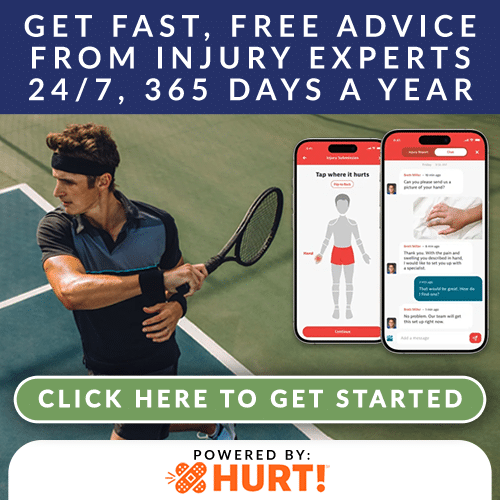Deborah’s life took a dramatic downturn just before her sixteenth birthday. A propane explosion that took place in her family’s home landed her in the hospital with full leg casts. Although fortunate to be alive, Deborah feared that she would never walk again. As it turned out, though, Deborah was soon back on her feet. Still, all was not well. As the years went on, Deborah felt that her knee, in her words, “was just never what it used to be.” Even after thirty years, she said that she had “so many limitations. No climbing stairs normally. No bike riding, no running, no dancing … all the things you wish you could do but can’t.” Deborah was a prime candidate for knee replacement surgery. Some estimate that 365,000 people undergo this procedure in the United States alone. On the average, that’s a thousand knee replacement surgeries every day! Who needs total knee replacement? What is done during the procedure? What are the benefits? What are the risks?
The Knee – A User’s Guide
The knee constitutes the largest joint in the body. Under normal circumstances, it is easily taken for granted. That is largely due to the smooth functioning of the knee’s components. The knee cap (patella) slides into a groove on the end of the thigh bone (femur). Thus, the thigh bone is able to rotate on the upper end of the shin bone (tibia).
The knee cap, which is between the thigh and shin bones, is literally pivotal to the entire performance. So are articular cartilage (which cushions the bones) and the synovial membrane (which releases a lubricating fluid that virtually eliminates all friction). As with many things in life, however, you can have too much of a good thing. With rheumatoid arthritis, for example, there is too much synovial fluid, and this can lead to chronic inflammation and cartilage loss. Injury, too, can disrupt the harmony of the knee joint components. This, in turn, can lead to stiffness and constant pain. Post Traumatic Arthritis—arthritis resulting from injury—is another leading cause of visits to the orthopedic surgeon.
Is Surgery for Everyone?
The thought of having surgery is frightening to many people. But when pain is persistent, or when it interferes with one’s normal daily routine, surgery is worth considering. The same is true when inflammation and swelling does not improve with the use of medications. In the end, though, the decision as to whether to submit to total knee replacement rests with the patient, not with the doctor. Only the patient can take all factors into consideration and weigh the potential benefits and compare them with the risks. This difficult decision can be made easier when patients realize how closely the surgeons at OSI work with our local hospitals to coordinate the post-operative care of patients. “We find that patients who understand their role in recovering from the surgery help improve outcomes”, says Abraham T. Shurland, an orthopedic surgeon with OSI. He continues, “Having a defined team to coordinate the care of patients in the hospitals is also a big help”.
Under the Knife
The surgery itself is quite brief, taking only a couple of hours. Your orthopedic surgeon will remove the damaged cartilage and bone and then position the new metal and plastic joint surfaces to restore the alignment and function of your knee. You are encouraged to visit the new OSI website at www.orthosurgeryinc.com to learn more.
After surgery, a brief hospital stay (perhaps a few days) is required. Pain is monitored and treated with the use of medication. Efforts to move the knee and walk are encouraged immediately, though it likely will be some months before normal functioning is resumed.
Weighing the Risks
There are a few risks with knee replacement surgery. In fact, it has been estimated that one in four patients will develop at least one complication. Most of these however are not related to the knee itself. For example, there have been incidents of infection, but this occurs in less than two percent of patients. A blood clot in a vein of the leg is a more common complication, so it is likely that as a preventive measure the doctor will prescribe specific exercises along with periodic elevation of the leg—and perhaps blood-thinning medication. Compression stockings can help reduce swelling. To facilitate a smooth recovery, and cut down on the risk of post-surgery infection, physicians warn that any dental work that is needed should be taken care of before the knee surgery is performed. Why?
Again, the problem is risk of infection entering the bloodstream. Hence, extractions and periodontal work are best performed before—or long after—knee replacement surgery.
Assessing the Benefits
For many people, the benefits of knee replacement far outweigh the risks. “More than 90 percent of individuals who undergo total knee replacement experience a dramatic reduction of knee pain and a significant improvement in the ability to perform common activities of daily living,” says the American Academy of Orthopaedic Surgeons. However, they add the caution: “Total knee replacement won’t make you a super-athlete or allow you to do more than you could before you developed arthritis.” A successful operation will provide relief for at least ten years. A second operation does not usually yield as effective results as the first, and the risks are higher. Still, when the largest joint becomes the biggest pain, many are willing to submit to this quick procedure that can help them regain their life. Deborah, mentioned at the outset, feels that the procedure changed her life for the better. “Total Knee Replacement is the most marvelous surgery I have ever experienced,” she says. “For a surgeon to take a person so limited in life’s actions and to make a mobile, active person, who is pain free, is a miracle.”

